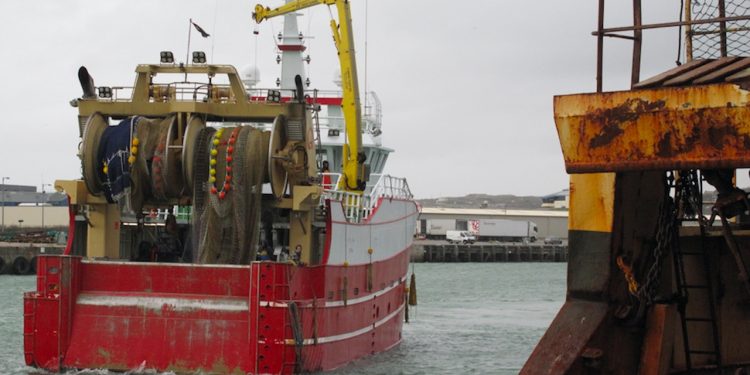Following a marathon meeting, EU decision-makers agreed on the new European Maritime Fisheries and Aquaculture Fund (EMFAF) as part of the package of the Multiannual Financial Framework (MFF).
The new fisheries fund will cover the budgetary period 2021-2027 with a financial envelope of €6.108 billion (in current prices). European industry body Europêche has welcomed the timely consensus on the new regulation before the end of the year as well as the simplification and flexibility offered by the new fund. However, the sector regrets the budget decrease.
‘Now more than ever the support from the EU is fundamental not only to face external challenges such as the Covid-19 or Brexit but also to implement ambitious policies such as the EU Green Deal,’ said Europêche managing director Daniel Voces.
‘With such a difficult scenario and ambitious policies on the horizon, the sector would have expected a higher budget. We regret that the Council has not followed the proposals from the Parliament nor the Commission to increase the financial envelop to meet the pressing challenges confronting us.’
The political agreement with the European Parliament on a new EMFAF regulation provides a simplified fund for fishermen with the aim of modernising the fleet, supporting data collection and efficient control, and strengthening international ocean governance. Despite the push from the European Parliament to top up the original budget proposal by 614 million (10% increase), and the Commission’s additional funding proposal of €500 million to help the sector recover from the impact of Covid-19 (8% increase), EU governments decided already in July a cut of € 32 million, resulting in a € 6.108 billion financial package
On a positive note, the new fund moves away from rigid descriptions of financing possibilities and eligible measures, only prescribing conditions on certain fleet subsidies to ensure a level playing field and sustainable investments. Under the new philosophy, operations not explicitly forbidden will be permitted, granting greater legal security to Member States and fishermen.
The new EMFAF will continue financing operations to modernise and improve energy efficiency, health, safety and working conditions for all fleets regardless of the size of the vessel. Only three specific operations will be exclusively granted to vessels below 24 metres.
These are the replacement of engines with the aim of increasing energy efficiency and reducing CO2 emissions, incentivising access to the sector by supporting the first acquisition of vessels by young fishermen, and a novelty, in line with the sector’s long-standing argument operations that require more space on board such as renovating accommodation for the well-being of the crews. Europêche regrets that the call from the Parliament to extend these measures to the whole fleet was finally not taken on board, especially since larger boats are actually subject to binding international legal obligations.
Europêche welcomes that the new EMFAF may support the temporary cessation of fishing activities for up to 12 months per vessel or per fisherman during the programming period. However, from now on, no compensation will be granted for fishermen in case of non-renewal of a fisheries agreement with a third country. The sector also welcomes the reintroduction of permanent cessation or decommissioning schemes.
The new fund has included new measures to help fishermen respond to exceptional crises, such as Covid-19, that cause market disruptions such as storage aid and compensations to operators for their income foregone or additional costs.
The industry has voiced its appreciation of the Council’s request for the continuity of the financial support for key actions such as fisheries control and enforcement, including the purchase, installation and management of tracking and electronic systems for all vessels used for control purposes.
Given the Covid-19 situation and the disruption of the markets, Europêche calls on the Commission to facilitate the extension of the current EMFF funding, including the emergency measures adopted last year, allowing its full use until the national operational programmes specifying how governments intend to spend the money are in place.
The sector appreciates the efforts made by the European Parliament rapporteur Gabriel Mato to fight for a fund that enables the EU fleet to fish better, not to fish more, fully in line with WTO’s mandate to end harmful subsidies.









